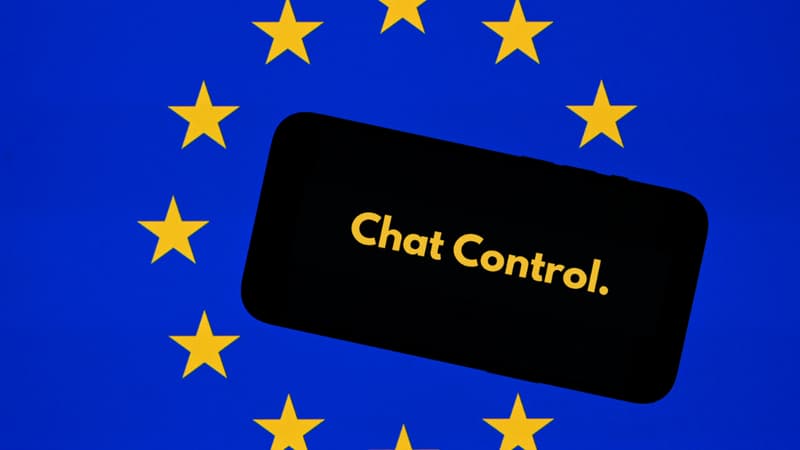Its detractors called it “Chat Control”: the European Union will abandon the most criticized measure in a text against child crime, a technology that would have allowed private conversations to be scanned, officials announced to AFP on Thursday.
A “disproportionate” attack on our private life
In 2022, the European Commission presented a draft law aimed at combating the proliferation of images and videos of sexual violence against children and against the solicitation of children by child offenders.
This initiative has fueled heated debates in recent years.
With the support of several child protection associations, it planned to require online platforms and messaging services to detect and then report such content.
A measure, however, strongly criticized by MEPs and by some countries, including Germany, which considered it a “disproportionate” attack on respect for private life.
These actors were especially concerned about the use of technology that allowed users’ private conversations to be scanned, even on encrypted messaging services such as Signal or WhatsApp, to detect child pornography content.
The platforms also opposed the text.
“Difficult” discussions
Does the protection of children justify giving access to private messages? That is, renouncing private life, a fundamental pillar of freedom. This explosive issue gave rise to particularly “difficult” discussions between the 27 member countries of the EU, a European diplomatic source told AFP.
After several years of negotiations, Denmark, which currently holds the rotating presidency of the European Union, has finally decided to withdraw this controversial measure from the text, in the hope that it will finally be adopted.
And with good reason: the rules currently in place to detect online child pornography content will expire soon, in April 2026.
“There was a serious risk of being left for a long period without the tool we have today,” Danish Justice Minister Peter Hummelgaard told AFP. “We couldn’t afford that.”
It’s not a victory, but it’s not a defeat either…
The new commitment is more similar to what is currently authorized: that platforms can detect child pornography content, but exclusively on a voluntary basis, without a judge ordering it, for example.
Standards that several countries, including Denmark, consider largely insufficient.
“Unfortunately, the offensive against child sexual abuse will not be what we need, but it will be much better than a real step backwards,” explained his minister.
A report by the British organization Internet Watch Foundation (IWF) published in 2024 estimated that 62% of child pornography content was hosted on servers located in the EU.
Opponents of the text, on the other hand, welcomed this new version of the text.
This is “a big step forward,” celebrated activist and former German MEP Patrick Breyer, a staunch opponent of the measure, nicknamed “Chat Control” by its detractors and which was the subject of intense mobilization on social networks.
Asked by AFP, the Commission, which initiated the proposal, indicated that it would not comment on the current legislative proposals.
Source: BFM TV


